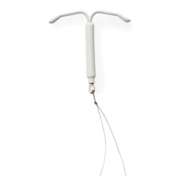If you are an active-duty member of the U.S. military, here’s some great news: you have access to a wide range of birth control methods covered under your TRICARE plan. The less great news: not all methods are offered at every military treatment facility (MTF), especially during deployment. That’s why even if you’re not sure you’ll need birth control, it’s a good idea to look into your options before you deploy—especially if you’re going overseas. We’ve laid out some tips and questions to think about so you can make an informed decision.
- Birth control
- IUD
- FAQs
Birth Control
IUD

How do I get birth control when I’m in the military?
If you are an active-duty member of the U.S. military, here’s some great news: you have access to a wide range of birth control methods covered under your TRICARE plan. The less great news: not all methods are offered at every military treatment facility (MTF), especially during deployment. That’s why even if you’re not sure you’ll need birth control, it’s a good idea to look into your options before you deploy—especially if you’re going overseas.
We’ve laid out some tips and questions to think about so you can make an informed decision.
Want to learn more?
I heard the IUD is really expensive—how much does it cost?
If you have health insurance—whether it’s through your parents, school, job, the Affordable Care Act (ACA) marketplace, or Medicaid—chances are good that you’ll be able to get an IUD with no out-of-pocket cost.
If you don’t have health insurance, it’s true that the up-front cost of an IUD can be high, but because the IUD can last for years (3-12 depending on the type) even if you pay full price upfront it ends up being pretty cheap over time.
If that isn’t an option for you, the manufacturers of IUDs often offer discounts, and you can also check with the family planning clinics around you and find out if they offer discounts or payment plans for IUDs.
If you don’t have health insurance, it’s true that the up-front cost of an IUD can be high, but because the IUD can last for years (3-12 depending on the type) even if you pay full price upfront it ends up being pretty cheap over time.
If that isn’t an option for you, the manufacturers of IUDs often offer discounts, and you can also check with the family planning clinics around you and find out if they offer discounts or payment plans for IUDs.
If you have health insurance—whether it’s through your parents, school, job, the Affordable Care Act (ACA) marketplace, or Medicaid—chances are good that you’ll be able to get an IUD with no out-of-pocket cost.
If you don’t have health insurance, it’s true that the up-front cost of an IUD can be high, but because the IUD can last for years (3-12 depending on the type) even if you pay full price upfront it ends up being pretty cheap over time.
If that isn’t an option for you, the manufacturers of IUDs often offer discounts, and you can also check with the family planning clinics around you and find out if they offer discounts or payment plans for IUDs.
Want to learn more?

Subscribe to Frisky Fridays
Heat up your weekends with our best sex tips and so much more.